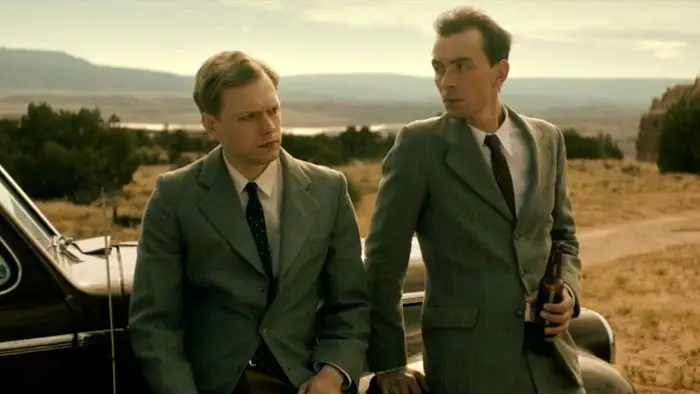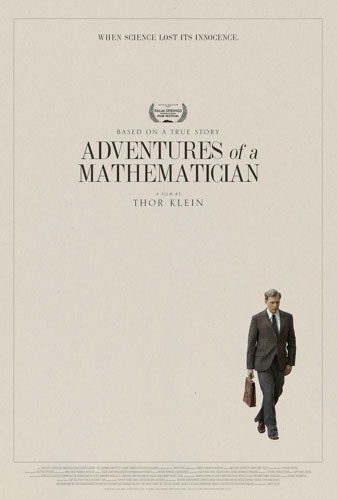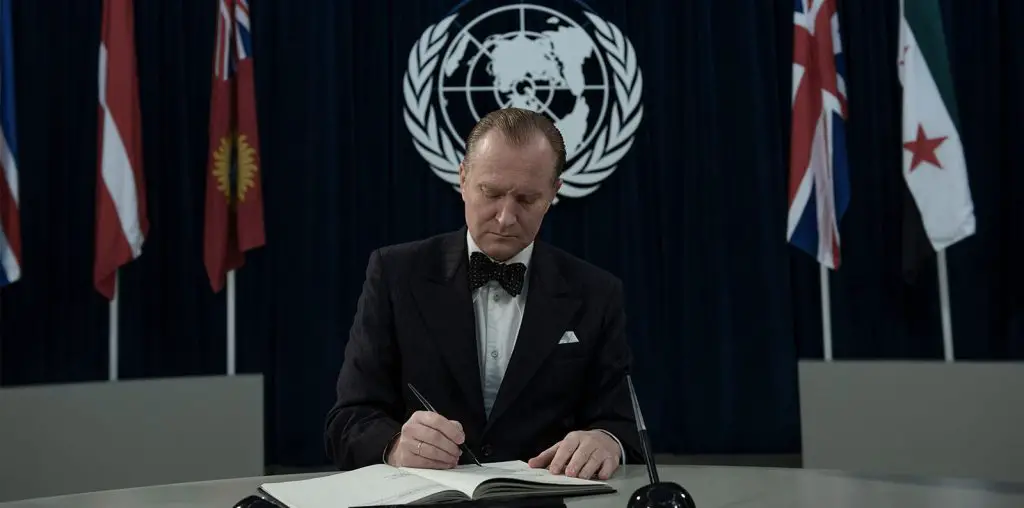
Adventures of a Mathematician follows a group of young scientists at the dawn of the nuclear age. Based on the memoirs of Polish mathematician Stanis “Stan” Ulam (Philippe Tlokinski), the film chronicles the moral ambiguity of creating the atomic bomb during the height of World War II. Despite his ethical objections to creating such a destructive force, Stan must come to terms with the cost of ending the war and creating history’s most infamous weapon.
At the start, Stan is living a relatively comfortable life teaching at Harvard. But, regardless of his considerate demeanor, he struggles with living in the U.S. while his family is under the threat of Nazi rule in his home country. As World World II calls him to action, Stan’s friend Johnny (Fabian Kociecki) offers him the chance to fight Hitler, not with bullets but with mathematics. Moving himself and his new wife Franciose (Esther Garrel) to New Mexico, Stan soon finds himself at a crux of history working on the Manhattan Project.

“…Stan soon finds himself at a crux of history working on the Manhattan Project.”
Writer and director Thor Klein raises many philosophical questions throughout Adventures of a Mathematician. He highlights the analytical side to creating a weapon of mass destruction and looks into the brilliant minds who consciously built it. Tlokinski plays Stan as a cold, calculated man conflicted by his ability to create such destruction. In contrast to Tlokinski’s approach, Garrel plays Franciose with empathy towards her husband’s trials with the bomb. The contrasting approaches fit the character’s motivations brilliantly and expand on the central themes of nuclear apocalypse and the probability of impending Cold War.
While watching the movie, the phrase “hurt in the edit” continued to pop into my mind. The story explores profound philosophical questions about the ethics of nuclear weapons, the humanity of creating and using such a weapon. Yet, scenes often cut just as the conversations get interesting. Stan and Johnny frequently discuss the impacts such a weapon would have on the world. There is even a tearful moment when a scientist breaks down after the dropping of the first atomic bomb. However, the film often flashes to the next point in Stan’s life rather than explore these emotions further. The screenplay does an excellent job of raising these questions about warfare and humanity yet rarely delivers.
I enjoyed the performances of Adventures of a Mathematician and, I more than appreciate the premise. The idea of holding a mirror to the world at the cusp of nuclear creation is a fascinating subject and, exploring the minds of a man who made nuclear war possible is engaging. However, the movie often feels like a timeline of Stan Ulam’s life in general rather than a focused narrative on the complex emotions of creating “death the destroyer of worlds.” Regardless of these hangups, the film still crafts a compelling story for those interested in WWII or slow-burning historical dramas. If you like titles like The Good Traitor or want a movie to accompany the memories of Stannis Ulam, this is worth a watch.

"…crafts a compelling story for those interested in WWII or slow-burning historical dramas."



[…] post Adventures of a Mathematician first appeared on Film […]